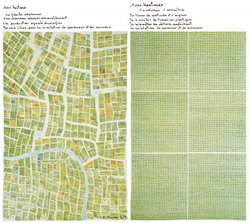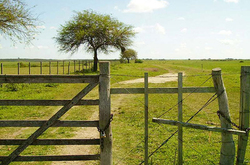Gallery
The Brazilian development bank, BNDES, will open its first Africa office as it looks to finance the expansion of Brazilian companies across the continent. (Photo: AFP)

Les plantations de canne à sucre (en rouge) occupent la majeure partie du territoire ancestral (contour jaune) de la communauté d'Ambrosio. (Photo: Tribunal Popular)
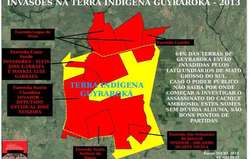
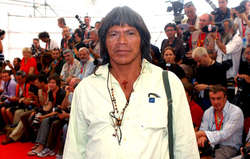
Golden Veroleum workers cram onto a tractor-drawn flatbed on their way to plant and water the fields. (Photo: Marco di Lauro)

"Ces dernières années, nos pays sont confrontés à différentes stratégies d'accaparement des terres fertiles de la part des pays industrialisés, multinationales, personnalités politiques et hommes d'affaires, aussi bien nationaux qu'étrangers, qui risquent de mettre en péril l'avenir des sociétés paysannes'', déplore le réseau Enda Tiers Monde.

RUBADA and Kilombero Plantations officials at the company's rice farm in Tanzania. Kilombero Plantations recently received GBP 6.7 million for its operations through a project supported by the UK's Department for International Development (DFID)

Kadzeha Ngala, 80 ans, avec sa famille, devant ce qui reste de sa maison, dans les environs de Mombasa, au Kenya (Gaylo Bocha pour le JDD)

"Avant cette nouvelle Constitution, les étrangers pouvaient acheter ce qu'ils voulaient", explique Ibrahim Mwathana, président du Land Development and Governance Institute, impliqué depuis plus de dix ans dans le travail de réforme foncière au Kenya. "Aujourd'hui, c'est enfin réglementé. Leur acquisition ne peut aller au-delà des 99 ans."

Kioko Wamba vit sur des terres données aux Émirats arabes unis, entre autres, par le gouvernement kényan. JDD


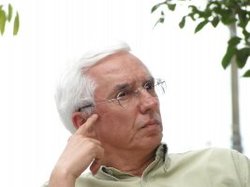

In Cambodia, companies and privileged elites, often members of the ruling Cambodian Peoples' Party under Prime Minister Hun Sen, are taking possession of fields and forested areas. The companies, often foreign, receive "economic land concessions" from the government when they need land for plantations and factories. (Photo: Reuters)

Abu Dhabi-based agriculture investment firm Jenaan, which acquired 160,000 feddans of land in Egypt, said it was changing its strategy in Egypt to growing wheat and helping ensure food supplies for the domestic market, instead of forage for export. "The Abu Dhabi government has advised us that we have to be part of Egypt's food security, and that is why we have already started growing wheat there now," Jenaan Chairman Mohammad al Otaiba told Reuters. (Photo: Shawn Baldwin/Getty Images)

Executives from Mint Consulting of Pakistan visit a rice farm in Gambela that they are developing. The farm is owned by Saudi Star Agricultural Development Plc, the company of Ethiopian-born Saudi billionaire Mohamed al-Amoudi. So far, by November 2013, rice has been planted on 350 hectares of a 10,000-hectare lease.

Farm manager Jimmy Hutchinson. Picture: Steve Ferrier/The West Australian
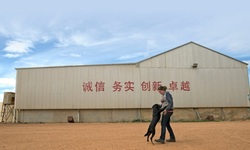
Avec l'entrée en vigueur de l'Accord de Partenariat Economique entre le Cameroun et l'Union européenne, qui prescrit le commerce du seul bois légal, tous les observateurs seront attentifs au strict respect de la législation forestière dans les opérations de la société SGSOC.

La production illégale et destructrice d"huile de palme en Indonésie se poursuit, telle est la conclusion d"un nouveau rapport publié aujourd"hui par les Amis de la Terre. (Crédit photo : Friends of the Earth, Anouk van Baalen.)

« Ce projet de loi ne va pas changer grand chose à la question de l"achat des terres par des multinationales », a indiqué à l"AFP Attila Szocs (à droite), responsable de l"association roumaine Eco Ruralis qui défend les petits paysans et l"agriculture traditionnelle.



"We have so many mines; we have logging, we have large agriculture. We could feed ourselves, but we are still very dependent on foreign aid." --Rosa Koian, Bismark Ramu Group, Papua New Guinea (Image: OnOurLandFilm.com)

"In GCC, to address food security challenges, food, agriculture and land bank funds have been launched with varying degrees of success. Like Islamic finance, Muslims need to control and not just contract food supply source," writes Rushdi Siddiqui. (Photo: Saudi Star officials visiting "their" rice farm in Ethiopia in 2012, courtesy MCG.)
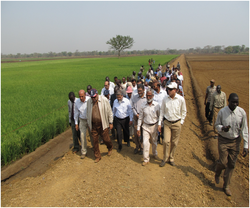
Le projet du Code d’investissement tunisien consacre l’arbitrage international en cas de conflits entre l’Etat et les investisseurs étrangers, y compris des conflits fonciers

Remembrement à marche forcée. Par Agnès Stienne, 2013.
